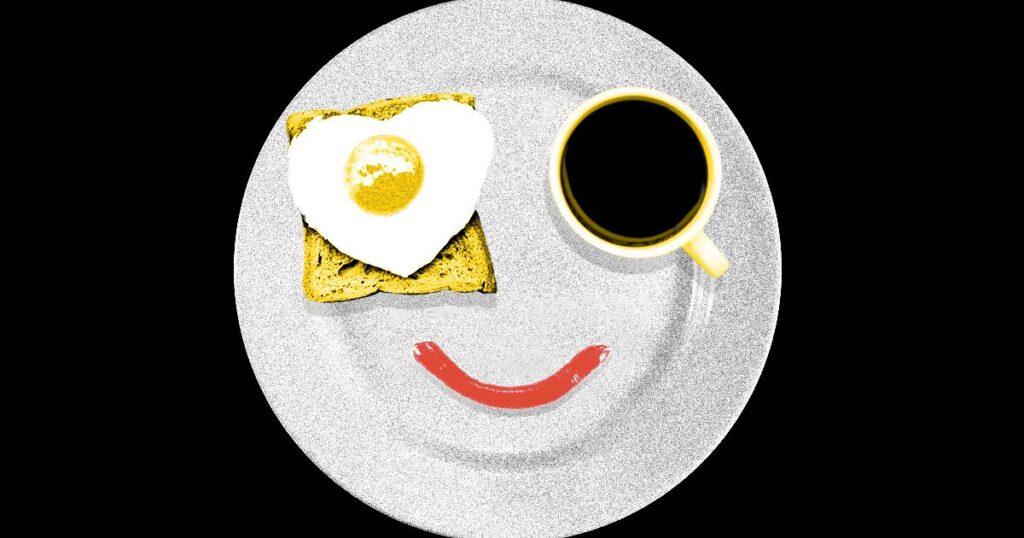“[We] have had issues when it comes to our weights, food… That comes from an emotional place, always,” Sonam Kapoor said on Koffee With Karan last year, backed by her cousin, Arjun Kapoor. “When you are going through those ups and downs, you kind of take solace in food, like, ‘Let me just have this packet of chips’. It’s emotional eating.”
The experiences of the Kapoor cousins resonating deeply with audiences, highlighted the sheer popularity of the coping mechanism. “Emotional eating is when people use food as a way to deal with their emotions and feelings instead of to satisfy their hunger,” explains Dr. Rahul Rai Kakkar, a psychiatrist at Narayana Superspeciality Hospital in Gurugram.
This isn’t a phenomenon restricted to India, though — globally, too, it’s one of the most common ways for people to cope with stress. The American Psychological Association (APA) notes that 27% of adults rely on food — often, the “comfort” variety, like ice cream, pizza, or chocolate — to suppress their emotions and soothe themselves when they’re stressed, anxious, upset, or even just lonely and bored. For most of them, food acts as a distraction from their stress, enabling them to experience a few moments of relief.
In a sense, then, emotional eating becomes a form of self-medication. “There is no question that food is used as a cheap drug… It makes us feel better, at least for a very short while,” notes Elissa Epel, a health psychologist and the Chair of the Department of Psychiatry at the University of California, San Francisco.
Related on The Swaddle:
For People With Poor Impulse Control, Instant Food Delivery Apps Can Kickstart Disordered Eating
Biologically, emotional eating can spawn a rather vicious cycle. Cortisol — the stress hormone — stimulates the craving for high-calorie, high-sugar foods. Consuming them triggers the release of dopamine — the happy, feel-good hormone — soothing us, and helping us feel better. Unfortunately, though, sugar also reduces the effectiveness of the dopamine receptors in our brains, causing us to crave more unhealthy food. “It is very likely that comfort food intake is a double-edged sword — leading not only to a dampened-down stress response system, but also to greater levels of risky abdominal fat,” Epel adds.
Emotional eating is also spurred by the fact that we associate fried, sugary foods — like fries, chicken nuggets, and pastries — with happy memories from childhood and adolescence, evoking a sense of comfort, pleasure, and relaxation. Moreover, food being an integral part of social and cultural experiences, too, can prompt people who aren’t in a great place, emotionally, to propose sharing meals with friends and family as a way to bond and connect with them — in a bid to feel a sense of belonging. Every once in a while, there’s no harm in it, of course. But going out and overeating — often accompanied by binge drinking, too — isn’t just bad for one’s physical and emotional wellbeing, but for their pockets, too.
Using food as a coping mechanism over and over again can lead people to develop a strong emotional dependency on food, compelling them to rely on overeating to regulate negative emotions every time they’re feeling low. “Emotional eating can cause overeating because it’s not fulfilling the need for calories and nutrients. When your body doesn’t need the food, taking extra calories at that time can lead you to gain weight. One could become obese or overweight by emotional eating,” Dr. Kakkar states.
Related on The Swaddle:
What Happens to Our Bodies When We Eat All Our Meals in Front of the TV
Here’s where one of the most pernicious contributions of diet culture to the English language — “a moment on the lips, forever on the hips” — comes into play. Overeating leads to weight gain, triggering poor body image. The APA reports that overeating prompts every one in two emotional eaters to feel disappointed in themselves, and almost the same number of people to feel bad about their bodies. And because they’re used to relying on food itself to cope, this births yet another vicious cycle of turning to food, yet again, to cope with the guilt, shame, and self-hate that overeating can trigger.
Besides worsening one’s mental health, overeating can have tangible impacts on people’s physical health, too, by increasing their risk of developing heart disease, diabetes, and high blood pressure. In addition, the comfort foods people tend to indulge in during emotional eating are, generally, high in unhealthy ingredients and low in nutrients, causing poor nutritional intake, and deficiencies in important vitamins and minerals.
The best way to avoid falling into this trap — or any trap, for that matter — is, well, to be mindful of our steps. “[O]nce we allow ourselves to stress eat for a few days, we subconsciously consider it the only way to cater our emotions, and it becomes difficult to get out of it,” Dr. Rohini Patil, a nutritionist, told The Indian Express. “Always remember that there is no harm in taking a break but do not let it be a habit. Habits turn into [a] lifestyle, and a lifestyle with bad food habits can lead to disease.”

